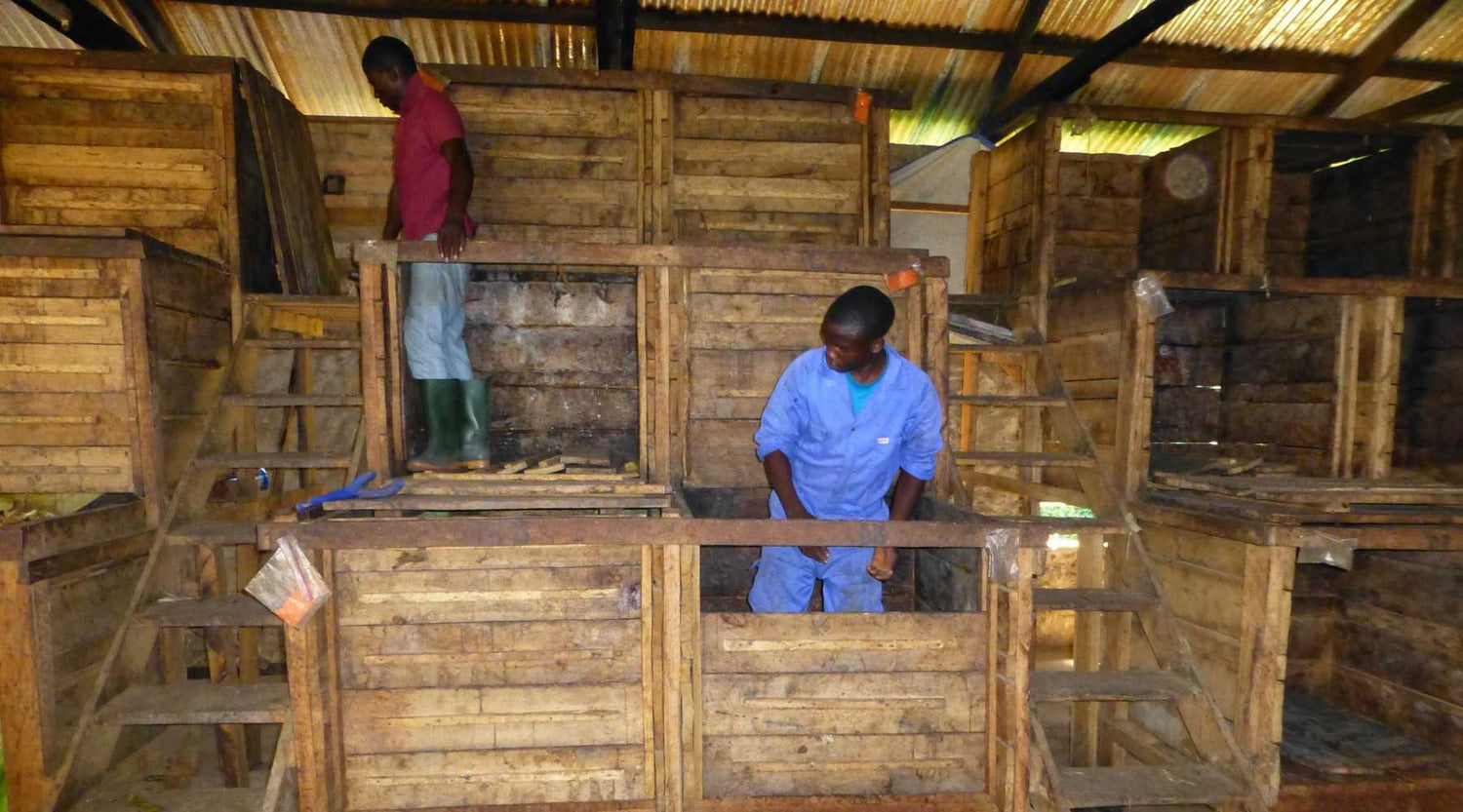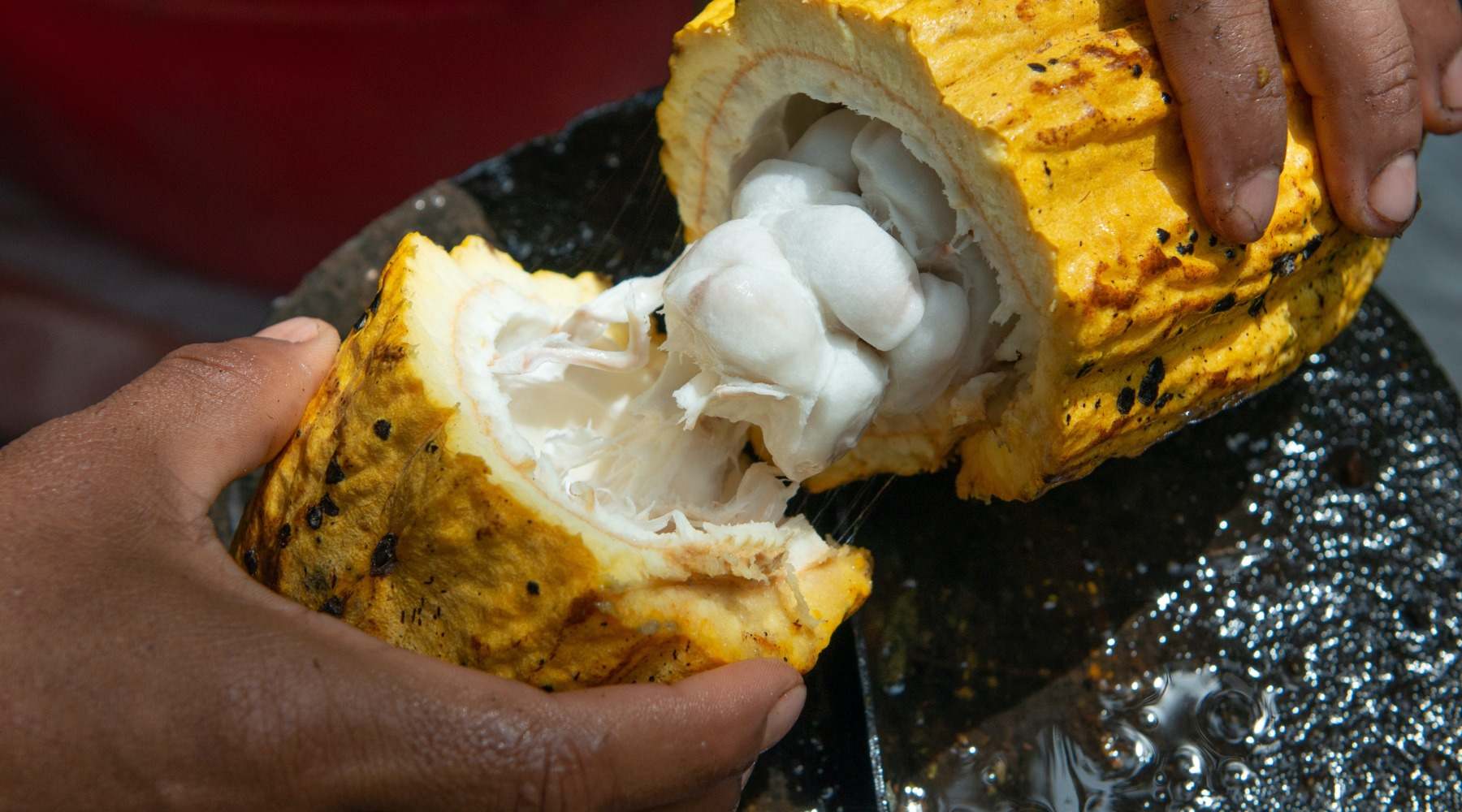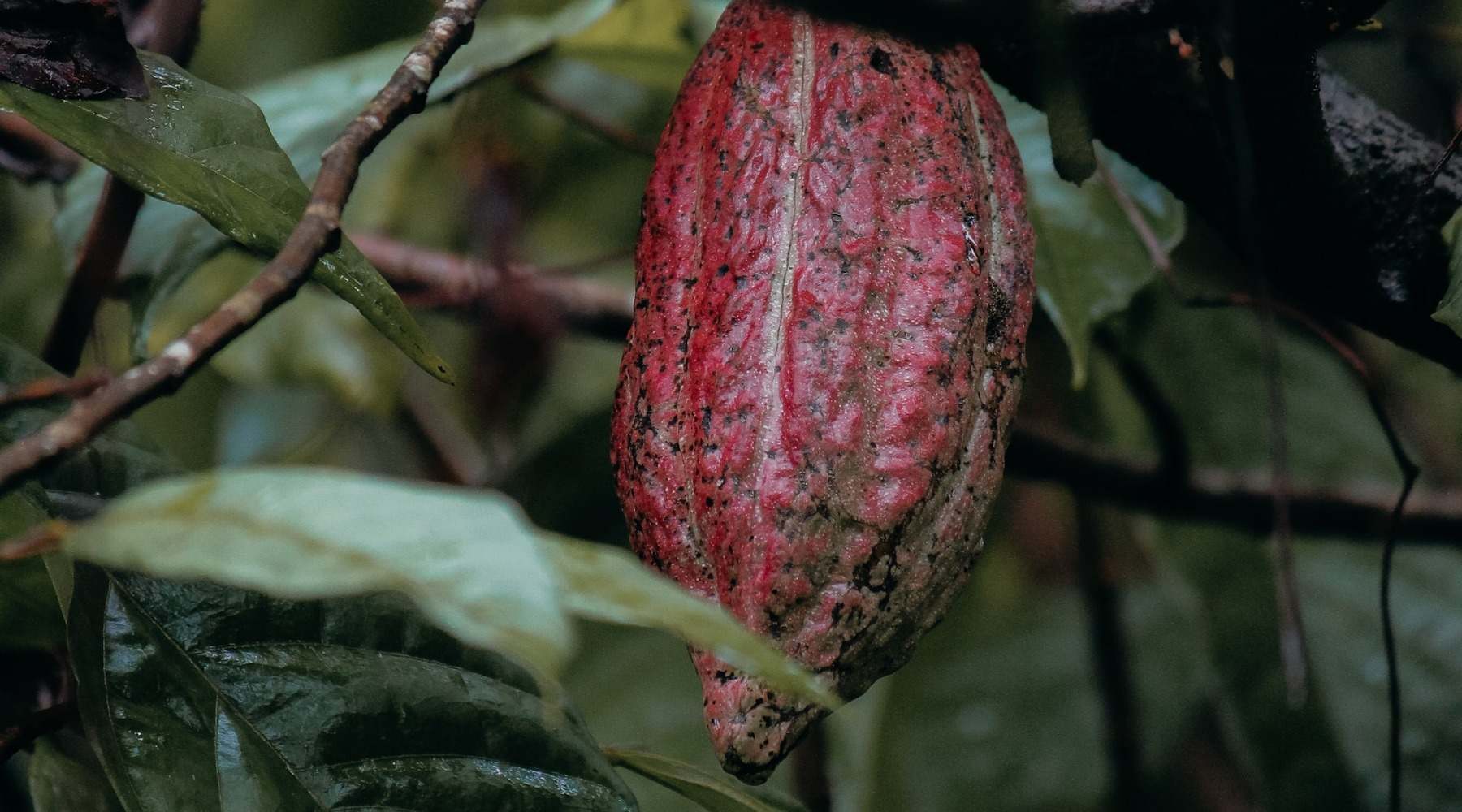From international development work to the bottom-up approach
Before founding Kokoa Kamilis, Simran and Brian worked in international development work. Like many other industry experts, the two did not think much of the offers of help from international NGOs and top-down support for Tanzanian farmers. Instead, they wanted to work closely with the farmers and thus have a direct, positive influence on their lives. In just a few years, they have achieved what decades of development work had failed to achieve: they pay cocoa farmers in the Morogoro region much higher purchase prices than average. But that's not all: Due to their very fair pricing, other buyers in the region had to follow suit and also increase their prices.
Cocoa cultivation in Tanzania: quality instead of quantity
But how did it happen? After the two founders examined the international market more closely, they came to the conclusion that Tanzania could position itself well in the global market primarily through quality rather than quantity. Their approach is therefore to buy only the best cocoa beans from cocoa farmers. Through their high premiums (at least 16% above local market prices), they incentivize farmers to concentrate on improving the quality of their beans. But that's not all: the prices that Kokoa Kamili pays cocoa farmers for unprocessed cocoa are published. In addition, they use certified scales to implement the broadest possible transparency into their processes. Overall, this leads to greater transparency within the Tanzanian cocoa market and strengthens the relationship of trust between Kokoa Kamili and the local cocoa farmers.Standardization and quality control
In contrast to many other exporters, Kokoa Kamili buys the freshly harvested cocoa directly from over 2,000 small Tanzanian farmers. For comparison: In many other countries, the fermentation and drying process is also the responsibility of the cocoa farmers. As a result, there are often fluctuations in the quality of the fermented cocoa beans. Many errors can occur, especially during the fermentation process . Many cocoa farmers are simply overwhelmed by such a wide range of tasks. That's why the founders of Kokoa Kamili agreed with the Tanzanian government on a division of labor approach. The cocoa farmers can concentrate on growing and harvesting the cocoa. While Kokoa Kamili has set up a standardized, centralized and controlled post-harvest process. This gives cocoa farmers more time for their core activities and at the same time improves their quality of life.100,000 cocoa trees for Tanzania
Kokoa Kamili has also managed to create over 50 jobs (with wages 2.7x higher than the local average) in a short period of time. In a region that is otherwise characterized by high unemployment. Many of these employees are farmers themselves and have been trained to work with other cocoa farmers to develop more productive cultivation and harvesting methods and thus increase the yields and quality of their cocoa in the long term.
In addition to these significant successes, Kokoa Kamili has launched a very successful seedling program. Since 2013, Kokoa Kamili has planted over 100,000 cocoa trees in their own nursery. Over 20% of this was given free of charge to Tanzanian cocoa farmers and donated to local orphanages and schools as an additional source of income.
Despite the many successes that Kokoa Kamili can already look back on, they are in constant competition with other buyers. These can offer lower prices, but are better motorized. This allows them to reach regions that Kokoa Kamili does not have access to.
From Tanzania to Theyo
We are pleased to offer several chocolates in our shop that were made from Kokoa Kamili cocoa beans. We love their fruity and woody notes, found in Mesjokke, Omnom and Original Beans chocolates. By the way, the beans are local Trinitario hybrids.More information about cocoa cultivation in Tanzania can be found on the Kokoa Kamili website.
Header photo by Kokoa Kamili



